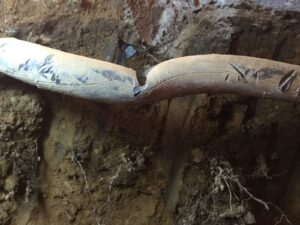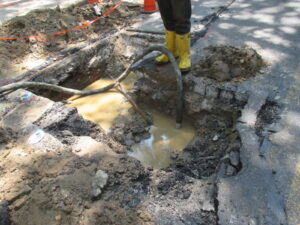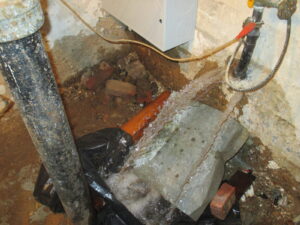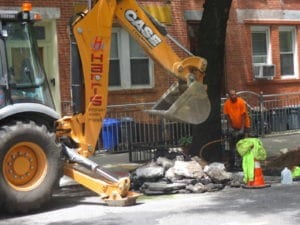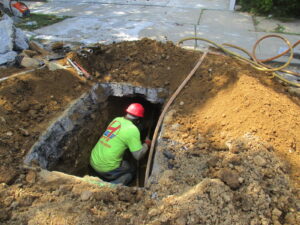This is a common question asked by many new homeowners, or prospective buyers. It is common for a lead water line to serve as a primary topic of discussion upon the completion of a home inspection.
There are multiple reasons why it is always suggested to replace a lead water line, and the most common reason is health. After extensive research over the previous two years, the conclusion results in traces of lead found in water from a lead pipe. The argument continues as to what level of lead is actually harmful to a young child however, most parents do not want to take any risk.
The other potential issue with a lead water line is an emergency water line break. NYC experiences thousands of water main breaks per year, with 75% of the breaks caused by the pipe being old and made of lead.
|
Replace or not to replace? |
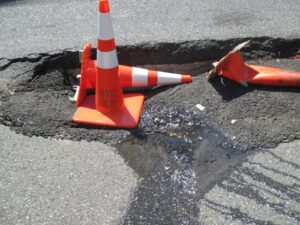
The result of not replacing |
Recently in Brooklyn
The tenants of a two family brownstone were enjoying their evening when they started to hear a hissing noise coming from the boiler room. They were quick to identify a pinhole on their lead water main and a small stream of water coming out of the pipe. After contacting DEP, they became aware that it was illegal to repair a lead pipe and that they had to have the entire water main replaced from the roadway, to inside their house.
|
Lead pipe broken under roadway |
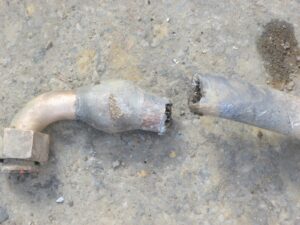
The broken lead pipe |
The lead water line was replaced the very next day with a copper water line. The entire process was completed within 6 hours.
Recently in Queens
This couple was not as lucky as the Brooklyn tenants. They first became aware of their broken lead water line after experiencing almost one inch of water covering the basement floor. It was suggested that the family open the house sewer trap and divert all of the leaking water to enter the sewer trap. They were successful in diverting the water as the sewer trap was located directly underneath where the water was entering the home.
|
Diverting the leak |
Digging roadway for repair |
The lead pipe was broken somewhere on the outside of the house and had to be replaced in full. Similar to the Brooklyn water main break, this job was completed within 24 hrs., and was a little easier as the city water main was located only 25’ from the foundation wall of the house.
|
Making tunnels for new copper |
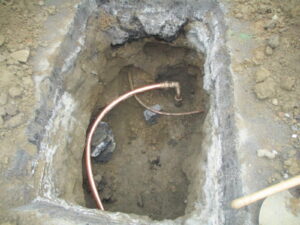
New copper pipe in ground |



